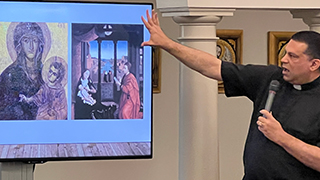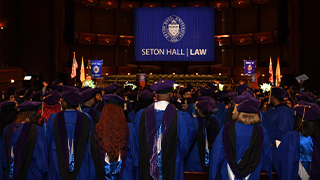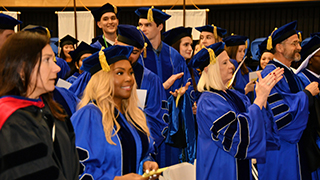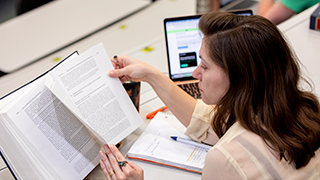2017-18 Chemistry Seminar Series Starts With Discussion of Food Rancidity - Seton Hall University
Thursday, August 24, 2017

The seminar will be held on Tuesday, August 29, 2017 from 5:45 p.m. – 7:00 p.m. in the Helen Lerner Amphitheater, Science and Technology Center, Seton Hall University. Refreshments are available at 5:30 p.m.
Rancidity is a sensory term that describes off-odors and flavors that develop when lipids oxidize in foods. It is easily recognizable in salad oils, peanut butter, potato chips and other snack products, nuts, and meats, and is the major reaction causing chemical degradation of foods during storage. The same reaction occurs in vivo in animals and is involved in aging, cancer, atherosclerosis, and a wide range of other pathologies. Lipid oxidation is a particular problem because it proceeds by a complex free radical chain reaction which, once started, keeps itself going indefinitely. This seminar will introduce the reactions involved in lipid oxidation, provide a logic for controlling the reactions, and show how oxidizing lipids affect food quality and health for more extensively than mere production of off-flavors and odors.
Dr. Schaich received a B.S. degree in Food Research from Purdue University. She developed her own degree program at Purdue in interdisciplinary science as a basis for graduate studies in food science. She received the Sc.D. degree in Food Chemistry from Massachusetts Institute of Technology, where she studied radical reactions of lipid oxidation and their transfer to proteins. She spent 15 years in the Medical Department at Brookhaven National Laboratory studying free radical reactions and lipid oxidation in human and animal pathology. Dr. Schaich joined the faculty in the Department of Food Science at Rutgers University in 1988. Her research at Rutgers focuses on mechanisms of lipid oxidation, lipid co-oxidations of proteins, actions of natural antioxidants, and free radical reactions in foods. She teaches undergraduate courses in Principles of Food Science that connects basic chemistry, microbiology, and engineering to food structure and behaviors in lecture and laboratory, and graduate courses in Food Chemistry and Lipid Chemistry.
The Department of Chemistry and Biochemistry offers B.S., M.S. and Ph.D. degrees with specializations in all areas of chemistry. Our unique research environment, including traditional full-time students and part-time students is designed to foster collaborations with industry and colleagues in other disciplines. The Rose Mercadante Seminar Series is named for Rose Mercadante, the departmental secretary for over 40 years, in honor of our alumni, her "boys and girls".





